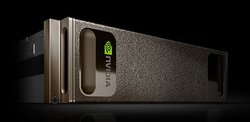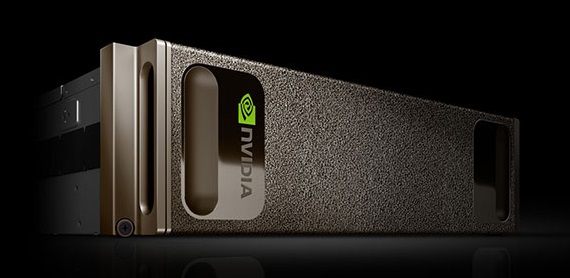
Sept. 22, 2016
By: Michael Feldman
BenevolentAI, a London-based artificial intelligence company specializing in health and bioscience applications, has acquired NVIDIA’s DGX-1, a deep learning system accelerated by eight Tesla P100 GPUs. The company plans to use the $129,000 machine to advance its work in drug discovery and related biomedical research.
 DGX-1 was designed as a development platform for deep learning applications, but that doesn’t mean it can’t be used for the kind of production work like what BenevolentAI has in mind. With more nearly 170 teraflops of half-precision (FP16) GPU performance connected via NVLink, along with an integrated software stack of deep learning frameworks, the DGX-1 is essentially an AI supercomputer in a 3U box. That makes it uniquely suited to startups and small organizations like BenevolentAI, which need lots computational power for their chosen work, but are too small to purchase a more conventional HPC machine with equivalent performance or get the attention of a national supercomputing center to obtain free cycles.
DGX-1 was designed as a development platform for deep learning applications, but that doesn’t mean it can’t be used for the kind of production work like what BenevolentAI has in mind. With more nearly 170 teraflops of half-precision (FP16) GPU performance connected via NVLink, along with an integrated software stack of deep learning frameworks, the DGX-1 is essentially an AI supercomputer in a 3U box. That makes it uniquely suited to startups and small organizations like BenevolentAI, which need lots computational power for their chosen work, but are too small to purchase a more conventional HPC machine with equivalent performance or get the attention of a national supercomputing center to obtain free cycles.
According to the announcement by BenevolentAI, the DGX-1 will support the company’s Judgment Augmented Correlation System (JACS), a deep learning and natural language processing software tool that is designed to sift through vast quantities scientific literature, primarily research articles and medical databases, and generate useful correlations from the content.
As noted by BenevolentAI co-founder and director Ken Mulvany, there are about 10,000 updates per day just to PubMed alone, far too many to be tracked and analyzed by human researchers. JACS though, is specifically built to do just that, and compile those individual research efforts into something usable. “For the current application of our AI technology in the bioscience space, it will mean that new drug discoveries can be made faster and more efficiently than ever before,” he says.
According to the company website, BenevolentAI is focused on the neurodegenerative and inflammatory diseases, such as Parkinson’s, Alzheimer’s, Amyotrophic Lateral Sclerosis (ALS) and rare cancers. Down the road, they’re looking to apply the JACS technology in areas that like women’s health, rare human diseases, veterinary medicine, nutraceuticals, cosmeceuticals and agri-tech.
Other DGX-1 deliveries this month include a system installed at the Pacific Northwest National Laboratory’s Center for Advanced Technology Evaluation (CENATE) and another one at the University of Reims Champagne‑Ardenne (URCA) in France. In August, NVIDIA donated a system to OpenAI, a research company devoted to advancing AI technology. We're bound to see additional such deployments as businesses and other organizations outside the hyperscale space and start to pick up on this technology.
